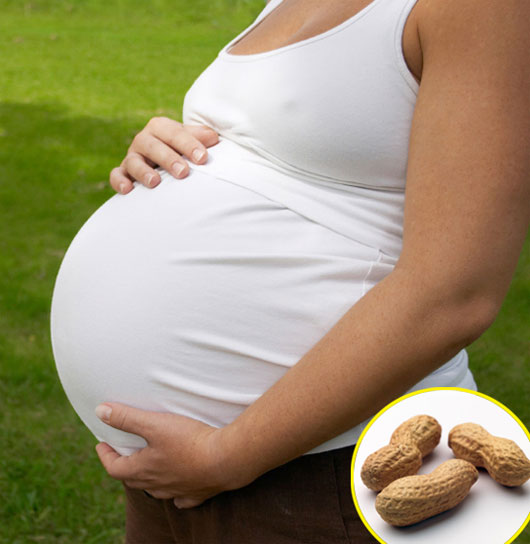Should pregnant women get lost?
(scienceinfo.net) - Peanuts and tree seeds have a lower rate of allergy in children whose mothers eat these foods during pregnancy, a new study finds.
Women do not need to worry that peanuts (peanuts) during pregnancy can make their children develop allergies to peanuts, according to a study published online by Boston Children's Hospital. December 23, 2013 in JAMA Pediatrics.
'Our research has shown, increased intake of pregnant maternal consumption, those who are not allergic to peanuts are associated with a lower rate of allergic allergy in their offspring,' said the author. The study's high, Michael Young, MD, of the Boston Children's Hospital for Allergy and Immunology said. 'If she is not allergic to peanuts, there is no reason for her to avoid eating during the pregnancy.'
In the past, women were advised to avoid highly allergenic foods such as peanuts or nuts during pregnancy and breastfeeding, and that their children should avoid straying. until 3 years old. The purpose of these recommendations, despite the lack of supportive studies, is to minimize exposure to allergens and sensitivities, thereby reducing the risk of developing allergies to peanuts. from childhood.

The American Academy of Pediatrics made the recommendation in 2000. However, from 1997 to 2007, the number of allergic allergies in the United States tripled, making the medical community watch. review this recommendation. Based on the lack of evidence of dietary support, the organization canceled the recommendation in 2008.
'No one can claim that the recommendation, avoid using peanuts, is related to the increased number of allergies to peanuts, observed in the 1990s and early 2000s, but one thing is certain. Sure, it didn't stop the increase in allergies to peanuts, ' Young said. 'It is clear that a new approach is needed, paving the way for a new research'.
To clarify the relationship between the diet of pregnant women and the development of food allergies in the next generation, Young and his team analyzed a large amount of data provided by the study. Growing Up Today Study (GUTS).
Examining the records of 8,205 children, the researchers identified 140 cases of allergies to peanuts and tree seeds. They then looked at the diet of mothers of these children - especially considering the consumption of peanuts and nuts - during pregnancy and comparing them to the eating habits of pregnant women whose children were Their are not allergic to peanuts.
Young and the team found that the rate of peanut allergy was significantly lower among the children in this study, whose mothers had been lost during pregnancy. Although this is a significant finding, the data demonstrate only a link between the mother's diet and the risk of allergy to peanuts in children.
- Explain the science behind the pregnant woman's curious appetite
- Pregnant women with Rubella infection are at risk of conception
- Pregnant women today are more susceptible to depression and anxiety than the older generation
- How to cure hemorrhoids for pregnant women
- Why do rural women often give birth to larger children?
- Discovered 3,700 year old remains of women about to give birth in Egypt
- Which age women are easily pregnant?
- Eating fish helps pregnant women reduce stress
- Most pregnant women lack vitamin D
- 'That' does not make her vote early
- The push button allows pregnant women to have their seats on the train
- Do not abstain from pregnancy after miscarriage
 Green tea cleans teeth better than mouthwash?
Green tea cleans teeth better than mouthwash? Death kiss: This is why you should not let anyone kiss your baby's lips
Death kiss: This is why you should not let anyone kiss your baby's lips What is salmonellosis?
What is salmonellosis? Caution should be exercised when using aloe vera through eating and drinking
Caution should be exercised when using aloe vera through eating and drinking